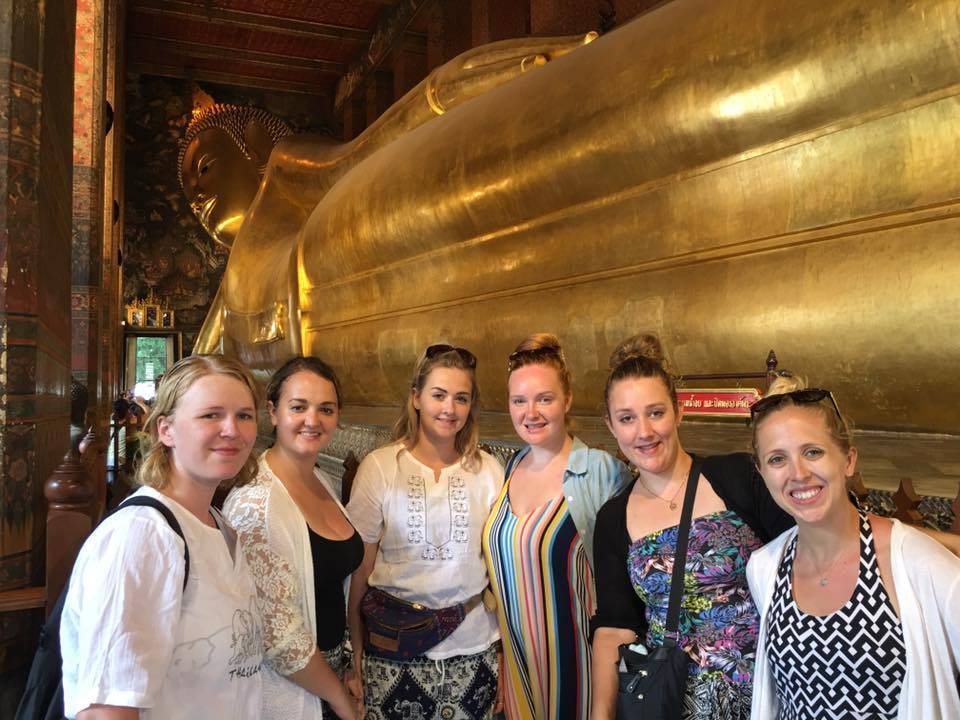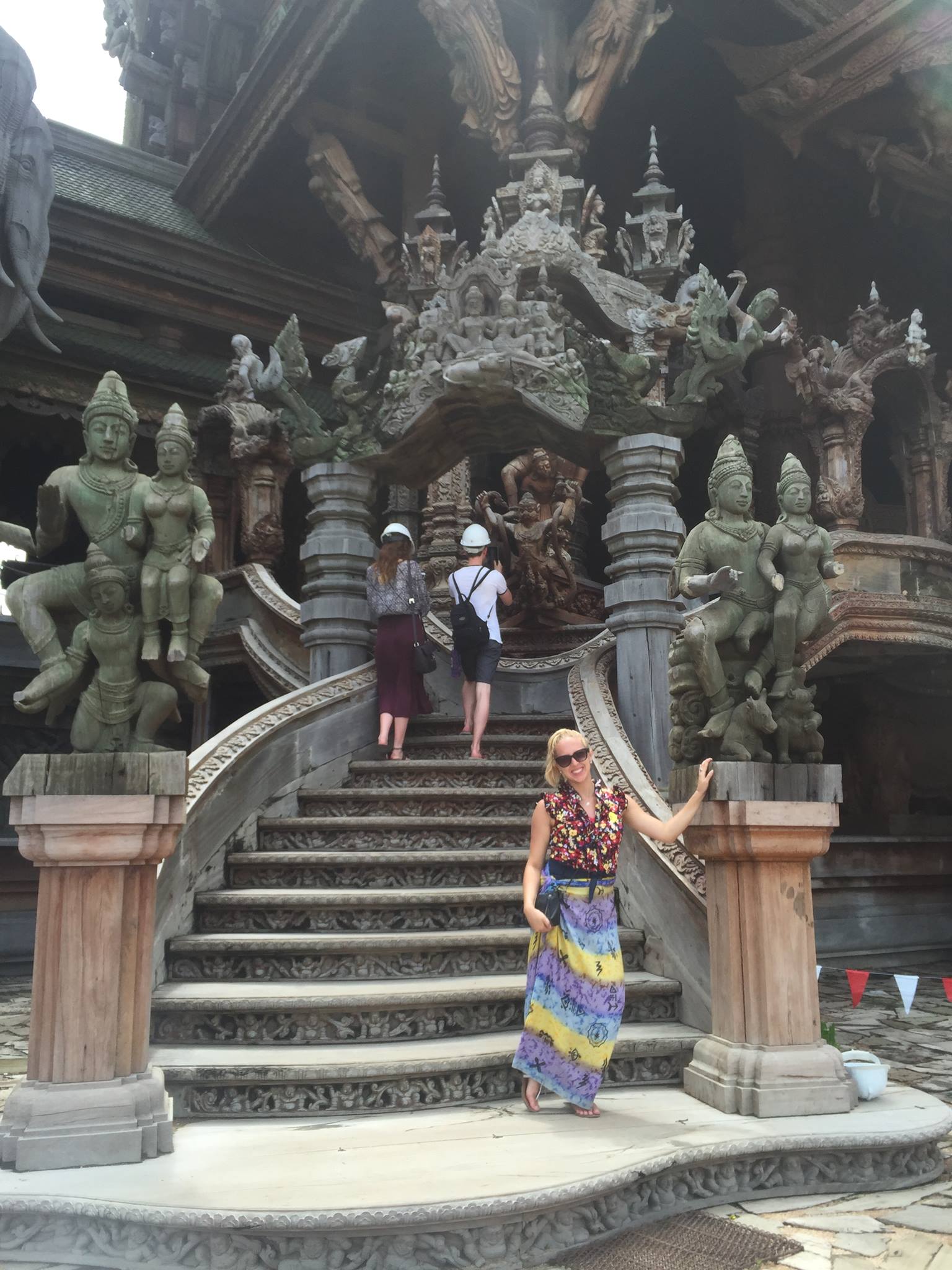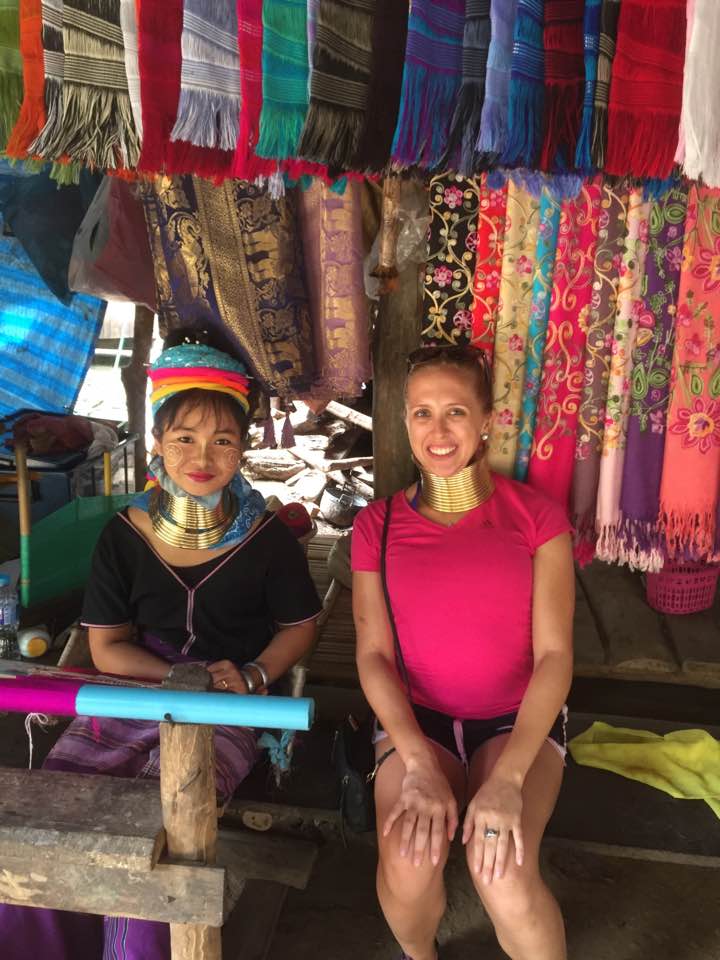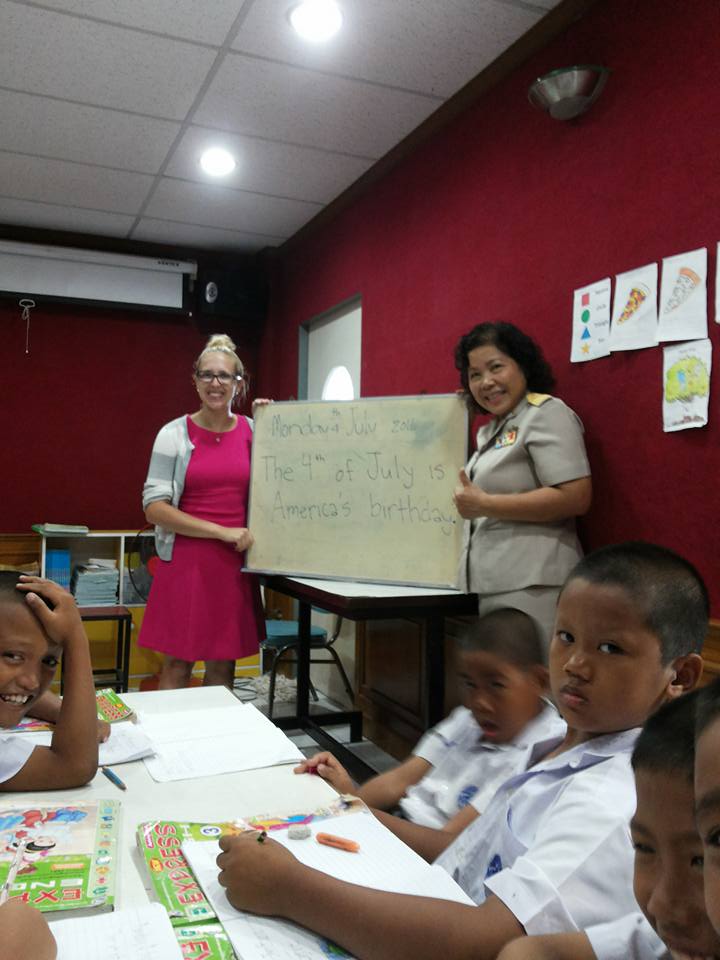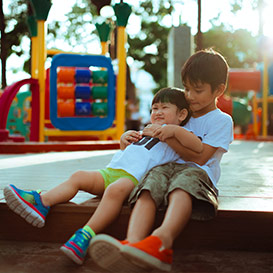There are many differences between Thai and western culture. First and foremost, Thailand is a very modest country. This was one of the first lessons I learned before coming to Thailand. No packing my usual summer wardrobe of tank tops and mini skirts! Especially when going into temples, the dress code is pants or a skirt over the knee, and a top that covers the shoulders with no stomach showing. I can get away with shorts when I’m not visiting temples, but it’s important to dress smart when in public and also while swimming (no bikinis). With the exclusion of temples, Thai people will never tell you to cover up, but it is respectful to follow the cultural guidelines.
Not only will a Thai person not tell you when your outfit is inappropriate, but they will never confront you. Thai people are extremely non-confrontational, and it is a bad idea to back them into a corner. During orientation for my program I learned that a Thai person will never show it when they are upset, so it is important not to push them into a situation where they lose face. This is most likely due to the fact that Thai people are raised to always show respect, and to care about the needs of others. They will therefore choose to remain kind and say “Mai Pen Rai” which translates to “never mind” or “it’s not important”. Thai people follow the philosophy of “Jai Yen” or “cool heart”, which means that even in stressful situations, they put others needs above their own and respond with a smile. It is possible for Thai people to have “Jai Rawn” or “hot heart”, but this is not the custom. During my time here I have seen both sides. The teachers and students I interact with show nothing but mutual respect towards each other, but I have also seen a few bus drivers loose their cool on passengers or traffic. Despite the few encounters I’ve had with a frustrated Thai person, I think we could all learn a lesson from their style of dealing with negative feelings or conflict. This is also not to say that you should take advantage of a Thai person’s good nature. It is important to be aware of the cultural norms and follow them as closely as possible.
There are many daily rituals and occurrences that tourists must be aware of. First, Thai people constantly use the wai. A wai is a bow, and Thai people will always bow to you as a sign of respect. They do this by pressing their hands together as if they are praying and moving their head down. The height of the hands varies by the amount of respect the person wants to display. Elders, monks, and the King would get a higher hand placement. It is polite to return this gesture and to say “Sawadee” which is “hello” in Thai. I must also mention that while you may encounter monks and it is perfectly respectful to bow to them, it is forbidden to touch a monk. If you do accidentally touch a monk nothing will happen to you, but it will be very bad for the monk and his vows. Among monks, you will also encounter many Buddha statues. Buddha is a revered figure and it is illegal in Thailand to use Buddha as decoration or to defile Buddha. Do not ever touch or climb on a Buddha statue, and always be as respectful as possible. Lastly, Thai people believe that the head is the holiest place in the body, and the feet are the least holy. Therefore, never touch a Thai person on the head and never show a Thai person your feet or point with your feet. You also must be aware of restaurants and temples where shoes are not permitted. This may seem like a lot of rules, but I promise it starts to feel normal after a while.
The last Thai cultural norm I would like to touch on is my personal favorite. Thai people constantly say “sabai sabai” which translates to something like “relax, easygoing, happy, comfortable, etc.” This is how many Thai people live their life. I find this especially interesting because Thai people do not have many luxuries. Their happiness does not stem from physical possessions and material wealth. Rather, happiness comes from within them and with the bonds they create with their families, friends, and communities. “Sabai sabai” has definitely been impressed upon me, and it is something I will take home with me as I encounter the stress and fast-paced style of western living.
